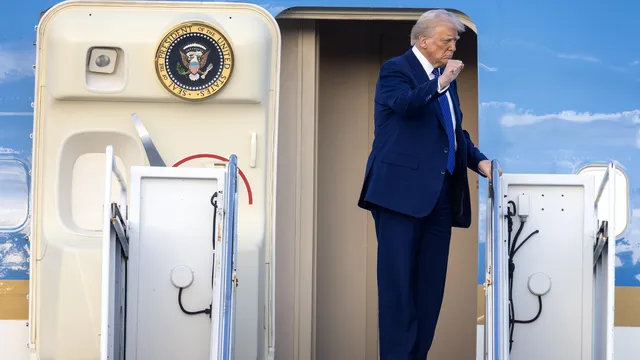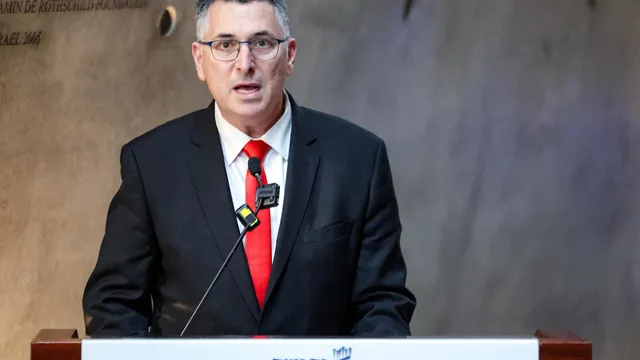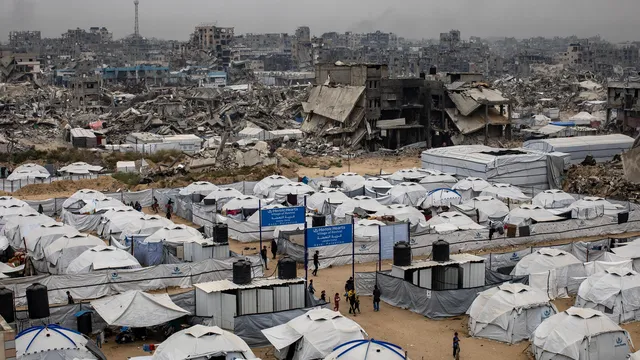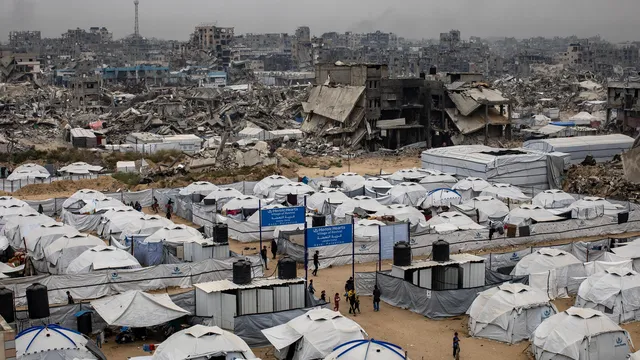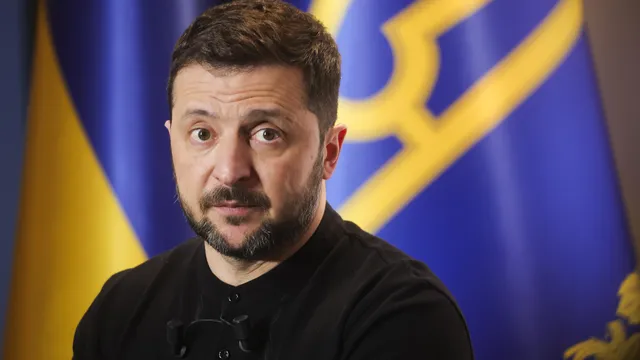Retired Lieutenant General Keith Kellogg said in an interview with The Times that British and French troops could take over control zones in the west of the country, forming a "pacification force."
Russia's army could remain in the occupied east, with Ukrainian forces and a demilitarized zone between them, said Kellogg, who previously served as national security adviser to Vice President Mike Pence.
The British- and French-led forces west of the Dnieper River, which divides Ukraine from north to south, "will not be provocative at all" to the Kremlin, he said.
Last month, Kellogg was excluded from peace talks because the Kremlin complained that he was "too close" to Kiev.
Now he has declared that Ukraine is large enough to accommodate several armies seeking to enforce a ceasefire.
"It could almost be made to resemble what happened to Berlin after World War II, when there was a Russian zone, a French zone, a British zone and a US zone," he added.
America will not provide ground forces, Kellogg added.
An 18-mile (30 km) demilitarized zone could be established along the existing lines of control in the eastern part of the country.
However, Moscow has repeatedly insisted that it will not accept peacekeeping troops from any NATO country "under any conditions" in Ukraine.
General Kellogg's proposal would mean Ukraine would give up on regaining its eastern territories, which are now under Russian control. But it was not clear whether he was proposing that Kiev cede more territory east of the river to Russia.
As Putin has been repeatedly accused of delaying any plans for a ceasefire, as agreed by Ukrainian President Volodymyr Zelensky, the White House has insisted that Trump will use his influence over Russia to negotiate a peace deal.
Spokeswoman Carolyn Leavitt said: "I cannot agree with what is happening right now. We believe we have hidden leverage in the peace agreement negotiations, and we will use those leverages, and the president is determined to see this through."
The Institute for the Study of War, a Washington think tank, reported that Russia is using bilateral talks with the United States to delay war talks, "suggesting that the Kremlin remains uninterested in serious peace talks to end the war."
Trump's special envoy Steve Witkoff held several hours of talks on a peace agreement with President Vladimir Putin in St. Petersburg.
The Kremlin posted a photo of the two men shaking hands on its website and said the meeting had taken place.
Russian news agencies reported that the meeting lasted more than 4 hours.
Just as the talks were about to begin, Trump warned on social media that Putin must make progress on the ceasefire.
Leavitt also reported that Witkoff discussed efforts to end the war with Putin and other officials.
"This is another step in the negotiation process towards a ceasefire and reaching a final peace agreement," she said. | BGNES

 Breaking news
Breaking news
 Europe
Europe
 Bulgaria
Bulgaria


